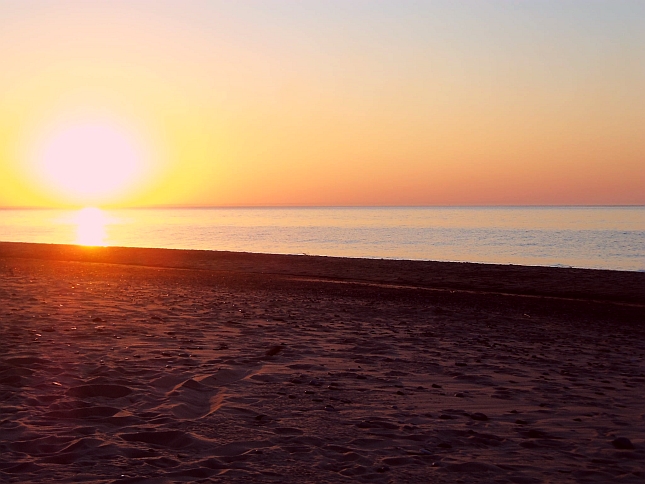
Statistically, people tend to die more frequently in the winter, especially during the holidays. Death isn’t the opposite of life, as our culture teaches us. Rather, death is a part of life. The opposite of death is birth. Both are a part of life. Unfortunately, our culture has an abhorrence of death and resists the process of death at every turn.
Rather than resisting death at all costs, perhaps we should think about what it means to die well? Catholics celebrate death very well. We know the importance of prayer, community, ritual, incense, candles, procession, music to help those who remain deal with the loss of someone close to them.
We also know that death is not the end. We believe that life continues beyond death. Consider the photo above as a metaphor for death. Is it a sunrise, a sunset or both at once?
The Japanese also have some beautiful traditional rituals surrounding death. Watch the Japanese film Departures to get a sense to the care and reverence given to those who die – and those who remain.
The book Gracefull Exits: How Great Beings Die by Sushila Black also talks about what it means to die well.
I spent time with a very close friend of mine who died too young from ovarian cancer. She was fully present to her life – even in her dying. I learned from her that if we live each day fully present, as if each day was our last, then we have learned to live well – and dying well is already incorporated into how we live.
Death changes us, but death is not the end. We are transcendent beings of love and depth. We exist beyond our death.
You may also like The Particular Sadness of Lemon Cake, Weekend Movie Ideas and Walk Out of the Tomb.
i like this so much. thanks for posting.